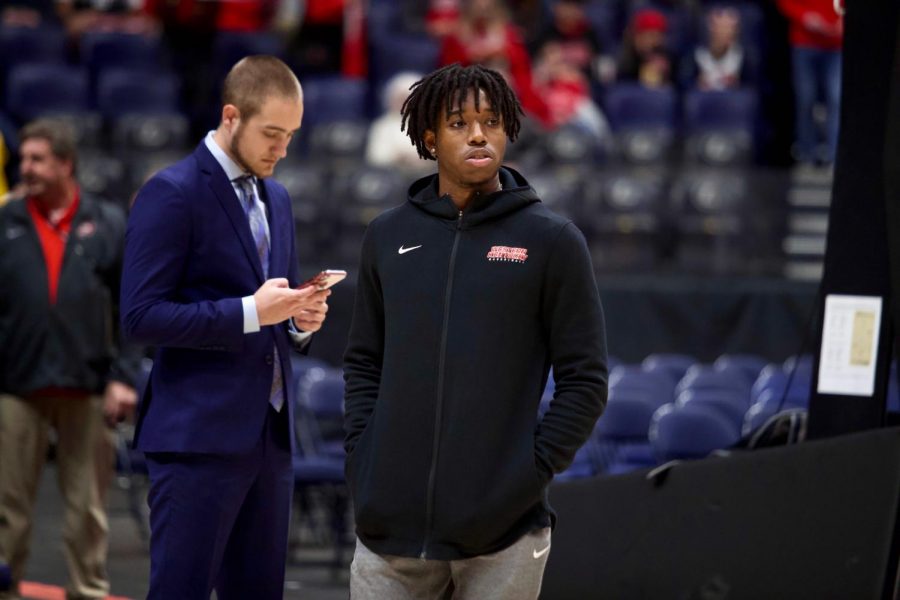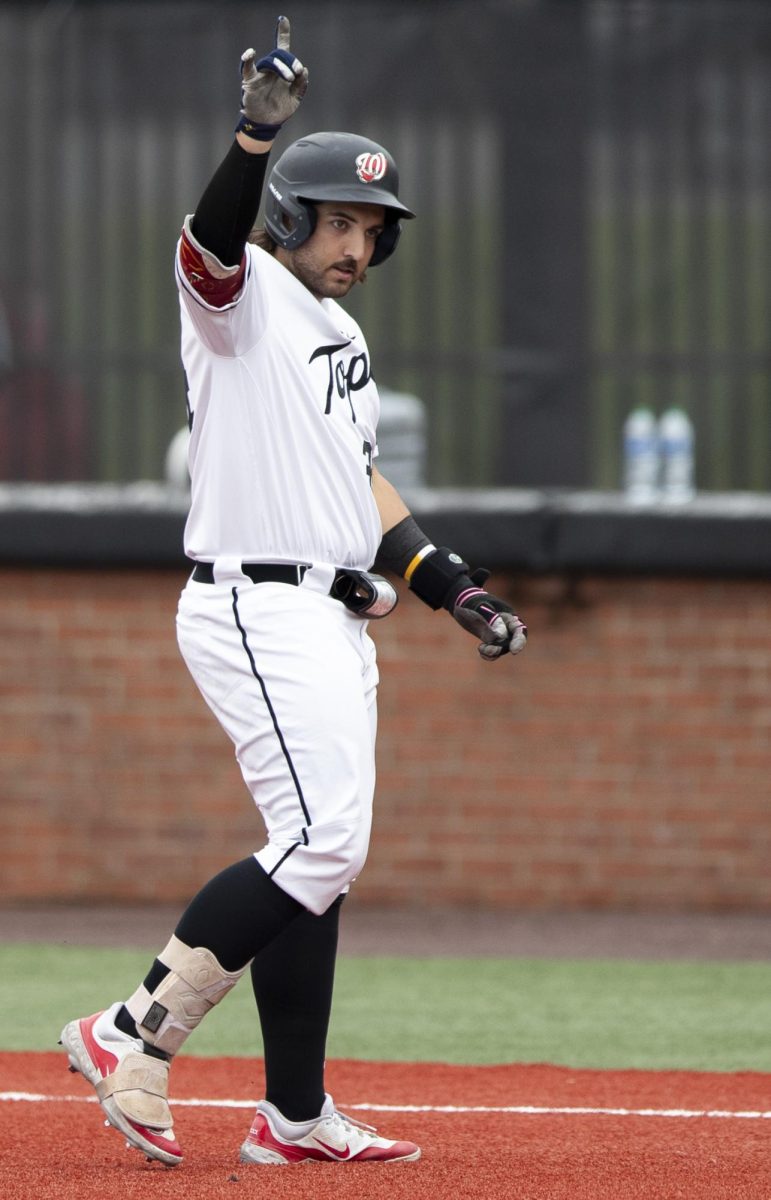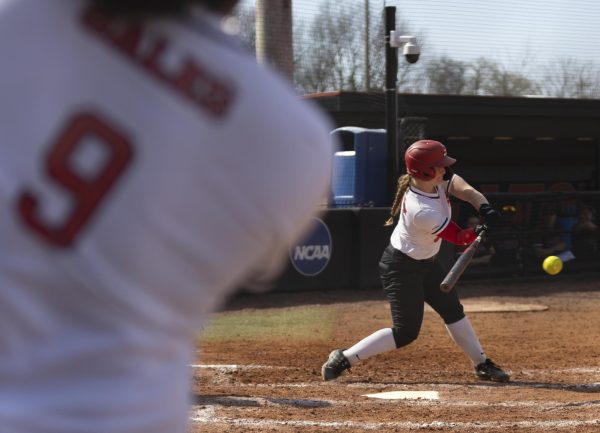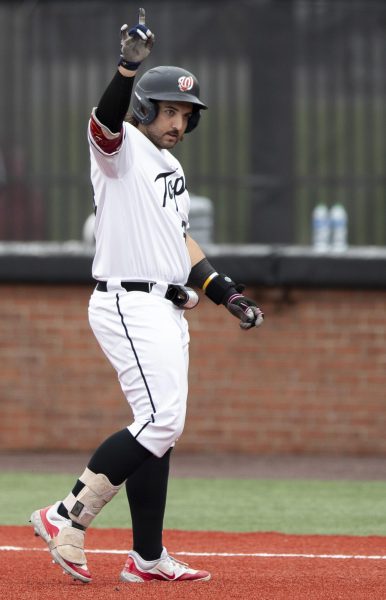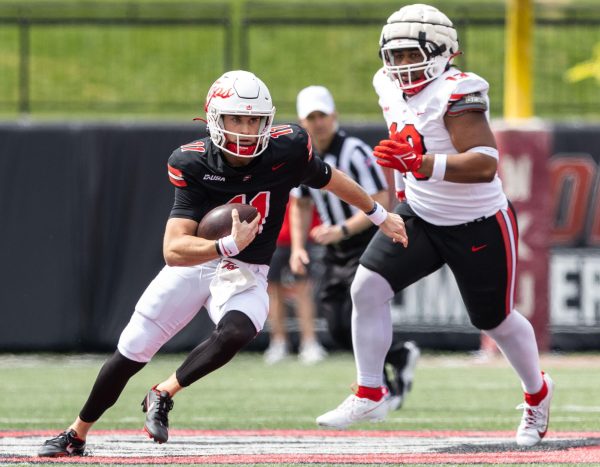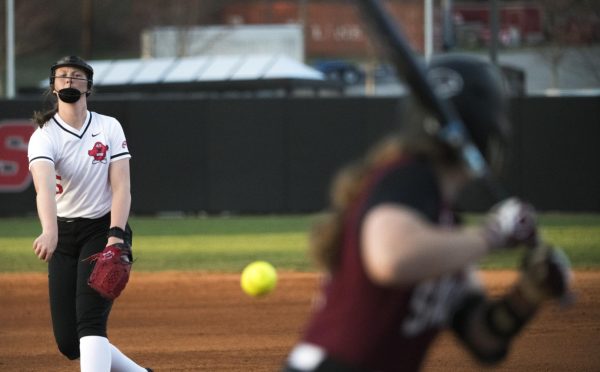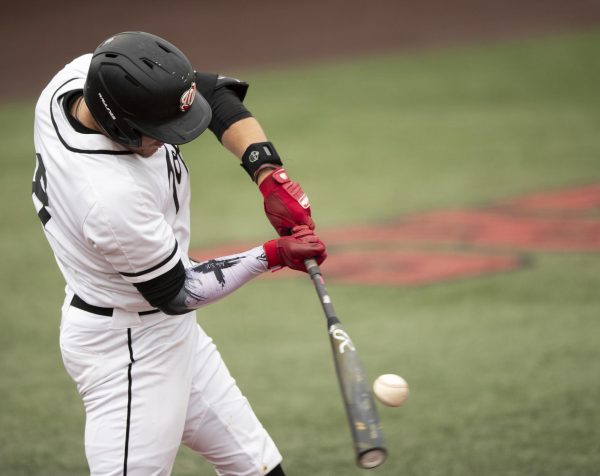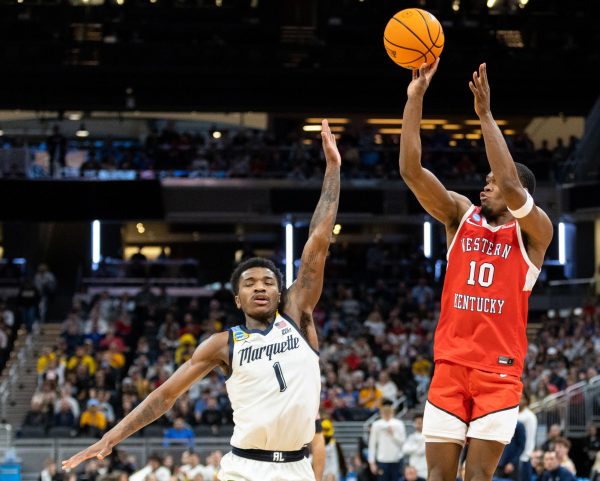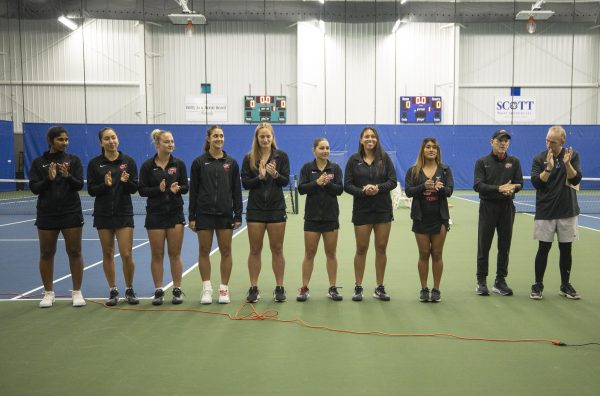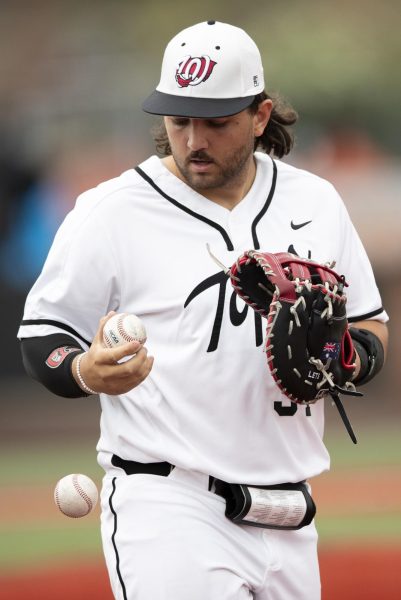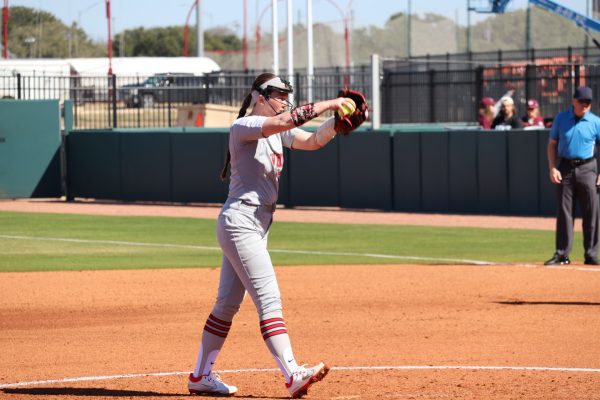Rick Stansbury alleges Lipscomb ‘didn’t support’ Kenny Cooper in quest to gain immediate eligibility at WKU
December 17, 2019
The WKU men’s basketball team learned on Dec. 10 that it would be without the services of senior guard Kenny Cooper for the entire 2019-20 season after the Lipscomb transfer’s request for immediate eligibility was denied by the NCAA.
The decision raised eyebrows because other men’s basketball players around the country were granted similar approval, but head coach Rick Stansbury said Monday that Cooper’s waiver appeal was shot down because his former school “didn’t support” his decision to leave the university.
“To me, he’s the only player in the country where a coach got fired or left that wasn’t granted eligibility,” Stansbury said. “But here was the common thread to all those other kids who got eligible — there’s a lot of kids got eligible from schools where coaches didn’t even leave. Transferred and got eligible. Whole bunch of ‘em.”
“The key was that school they left from supported the waiver,” Stansbury continued. “Lipscomb didn’t support his waiver. They didn’t support it. Kenny wouldn’t have left if the coach hadn’t left, but that’s their decision. Their administration made a decision they’re not going to support him leaving, for whatever reason, even though the coach left. So, you guys figure that out.”
A request for comment from the Lipscomb athletics department wasn’t immediately returned.
Former Lipscomb head coach Casey Alexander left the university to become the head coach at Belmont on April 10, which prompted Cooper to tell 247Sports he was transferring just five days later, according to a tweet posted by college basketball insider Evan Daniels.
Although transfers are typically forced to sit out a year at their new schools, Cooper told Daniels that his plan was “to appeal to be eligible right away because of the coaching change at Lipscomb,” according to another tweet posted by Daniels on April 15.
Cooper officially signed with WKU nine days later on April 24, laying the groundwork for a potential ruling from the NCAA months before the regular season started.
Stansbury was hopeful that a positive decision would be reached, even when WKU still hadn’t received word from the NCAA by the time the Hilltoppers started practicing in the fall.
He stayed optimistic through the team’s second annual pro day on Oct. 9 and Hilltopper Hysteria on Oct. 17 — both of which Cooper was legally allowed to participate in per NCAA rules — but his tone shifted after WKU played a third of its season without Cooper.
Stansbury said the Hilltoppers and all of Cooper’s other supporters “were so confident” in the waiver appeal initially because no one was able to track down an example of “another player where a coach left or got fired where the school didn’t support the waiver.”
Cooper “has had dialogue” with Lipscomb, but Stansbury said he believes current Lipscomb head coach Lennie Acuff “probably didn’t have much decision” regarding Cooper’s eligibility situation, although Stansbury noted he hadn’t “personally talked to the administration.”
A situation similar to Cooper’s played out earlier this season at Southern Methodist, as a pair of men’s basketball players who left their former schools — Texas Christian transfer Kendric Davis and California-Berkeley transfer Darius McNeill — attempted to gain immediate eligibility to play for the Mustangs.
Davis announced in June that he’d be transferring to SMU after spending his freshman season at TCU, where he appeared in all 37 games under tenured head coach Jamie Dixon.
Although Davis’ waiver for immediate eligibility was denied initially, SMU filed for an appeal that was eventually granted on Nov. 22 after his former school “wrote a letter to the NCAA in support of Davis’ transfer,” according to a Dallas Morning News report.
“Without [TCU] I still think we would have been denied again,” Davis told The Dallas Morning News. “They were very involved. I want to thank Coach [Jamie] Dixon. Without him, I don’t think it would have happened.”
SMU athletic director Rick Hart shared a similar sentiment on Twitter, thanking TCU for “helping us cross the finish line” in regard to Davis’ eligibility waiver.
McNeill was faced with a scenario much closer to Cooper’s situation.
He announced his intent to transfer in a tweet posted on March 23 — just one day before controversial Cal head coach Wyking Jones was fired on March 24 — and later committed to SMU on April 16.
Like Cooper, McNeill submitted a waiver for immediate eligibility and was forced to wait months until a ruling was handed down. McNeill was denied a waiver on Dec. 7, but “the school plans to appeal that decision,” according to a Dallas Morning News report.
The Herald confirmed with the WKU men’s basketball program that both the initial waiver and subsequent appeal were denied for Cooper. McNeill’s appeal has yet to reach a verdict.
With no more options left to pursue, Cooper will now sit out this season due to NCAA transfer policies and won’t be able to play for the Hilltoppers until the 2020-21 season.
In a word, Stansbury said Cooper is “disappointed.”
“Well, naturally, he’s disappointed,” Stansbury said. “He’s disappointed in the administration where he played for three years. He helped ‘em win some games this past year, get to the NIT Final Four, then the coach left.”
“Now, naturally, if the coach hadn’t left, then Kenny wouldn’t have left,” Stansbury continued. “So, basically the only person who got mistreated in this whole deal was Kenny. He’s very disappointed that the administration wouldn’t support him — for no reason.”
Regardless of the reason for the eligibility issue, Stansbury said he’ll have to change the way the Hilltoppers are configured this season and put his plans for “spreading that floor [with] a guy who really gets in that lane and creates for other people” on hold, at least for now.
“In the last three to four weeks since we started playing, once he’s gotten more comfortable, not having to think so much, he’s really gotten good in practice,” Stansbury said. “I hate it for him too … but we can all put it behind us. We know where we’re at, we know the pieces we have right now, we know we’re without him and we know we’re without Charles [Bassey].”
Sports Editor Drake Kizer can be reached at [email protected]. Follow Drake on Twitter at @drakekizer_.

